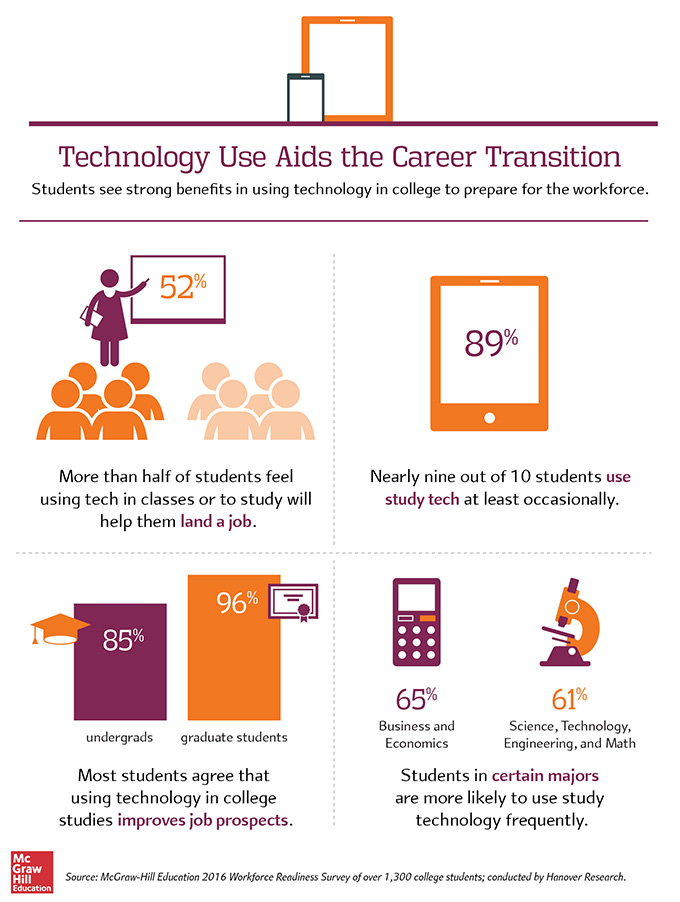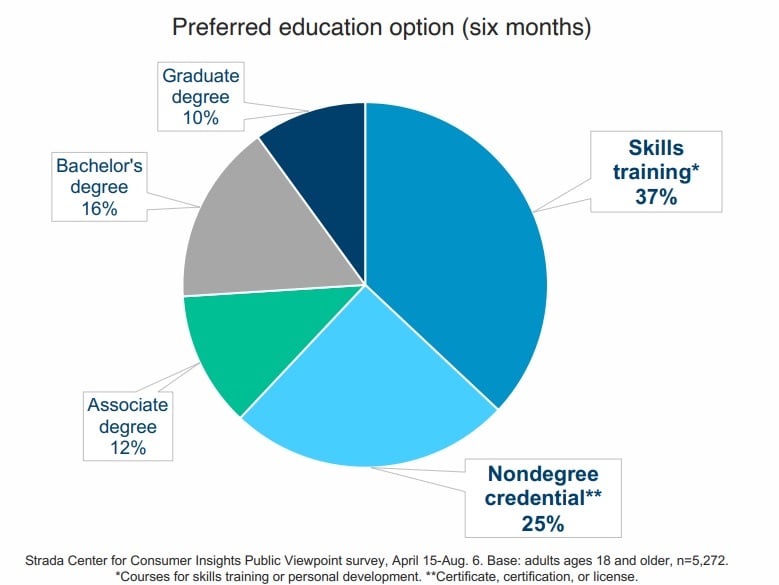Jul
2017
employment interview
9 questions to ask in a job interview that make you look smart
more on employment in this IMS blog
https://blog.stcloudstate.edu/ims?s=employment
Digital Literacy for St. Cloud State University
more on employment in this IMS blog
https://blog.stcloudstate.edu/ims?s=employment

+++++++++++++++++++
more on employment and technology in this IMS blog
https://blog.stcloudstate.edu/ims?s=employment+technology
Yesterday, we shared information about the new Coffee App
https://blog.stcloudstate.edu/ims/2014/10/01/coffee-the-app/
which offers easy approach to job search.
Please have the following article regarding LinkedIn and their approach to job search
The new Linkedin ranking system (https://www.linkedin.com/edu/rankings/us) tracks the success of college graduates in eight broad career paths, adding weight for jobs deemed “desirable.” It lists the top 25 institutions in each career category.
LinkedIn is ranking only a tiny swath of the academy.
LinkedIn also released a social networking application for prospective students to chat with each other about colleges, and to talk with current students.
As more jobs require postsecondary training, more providers jump in to offer it — including fakes and scammers
https://www.washingtonpost.com/education/2021/12/26/education-credential-certificate-scams/
a “maze” of nearly a million unique education credentials in the United States, the nonprofit Credential Engine reports, including not only degrees but also badges, certificates, licenses, apprenticeships and industry certifications.
The way new kinds of credentials are being developed and awarded is “a bit like the wild West,” a study by the Rutgers University Education and Employment Research Center found.
Even before the pandemic and the subsequent labor squeeze, 39 percent of human resources managers said they spent less than a minute reading a resume, according to a survey by CareerBuilder.
Conventional higher education institutions are increasingly alarmed about the holes that have developed in a system that was previously much simpler.
A quarter of American adults now hold nondegree credentials, meaning something short of an associate or bachelor’s degree, according to federal data, and they’ve become more popular in recent years.
“As online education becomes normalized, as a credential from Google or Microsoft can get someone a job, all of a sudden we’re in an environment where higher education doesn’t have a monopoly on education,” Ahluwalia said.
The Credential Engine Registry so far includes full or partial information on about 30,000 educational credentials. That’s about 3 percent of the total it eventually hopes to list.
+++++++++++++
more on credentials in this IMS blog
https://blog.stcloudstate.edu/ims?s=credentials
Providing to medical and welfare facilities for training medical professionals, for mental care and employment support of patients
For more details and applications for JOLLYGOOD+: https://jollygoodplus.com/
About Jolly Good Inc. (https://jollygood.co.jp/)
https://recruit.apo.ucla.edu/JPF06841
The center is focused on enterprise applications, workforce training in XR, narrative structures for XR storytelling, and (UX) User Experience in XR. This XR program is focused on training individuals to become XR content developers. The emphasis of this certificate is not on advanced coding or hardware development. Areas of recruitment include:
UCLA Extension is considered one of the top programs of its kind, offering to more than 35,000 students per year approximately 4,500 classes and non-degree certificate programs to meet the professional development, continuing education and personal enrichment needs of the full spectrum of nontraditional students as well as companies and organizations throughout and beyond the Los Angeles region.
Special Conditions of Employment
Instructors are hired on a quarterly contract basis.
Because Extension is a division of UCLA, all Extension degree-credit instructors and courses must be formally approved according to the regulations of the Academic Senate of the University of California. Eligibility to teach a course is contingent upon this formal academic approval. Once approved, teaching assignments are “by agreement.” The Instructor’s Contract outlines the deliverables for the course, the course schedule, and the compensation terms, subject to Extension policies and procedures. UCLA Extension makes no commitment to hire an instructor until it has sent and received a signed
Instructor Contract. Should the course section an instructor plans to teach be cancelled for any reason, the Instructor Contract, including rights to compensation for future section meetings, is voided.
In an effort to promote and maintain a healthy environment for our students, visitors and employees, UCLA is a smoke-free site. Smoking is prohibited within the boundaries of all UCLA owned, occupied, leased, and associated building and facilities. UCLA Extension is an Equal Opportunity Employer that values a diverse workforce.
To Apply:
Please follow the “apply now” link to submit the following:
Completed application form
Current CV
Link to portfolio or work samples if available
Cover letter”
Department: https://recruit.apo.ucla.edu/JPF06841
https://www.edsurge.com/news/2021-05-10-why-tech-companies-view-the-job-search-as-big-business
“jobtech”—to be approximately $40 billion in size, and growing rapidly.
These emerging companies bridge the gap between people and jobs by matching, training, and often literally placing candidates into positions. That’s different from edtech, which focuses on the learning but not the workforce connection; and from HR tech, which prioritizes recruiting but not training or skills development. It’s more than the professional networks and digital job boards that put all the pressure and responsibility on the worker. And it has the potential to address the pain points of both students and workers who are underemployed, or newly unemployed due to the pandemic, by translating skills and experiences into positive labor market outcomes.
+++++++++++++++
more on employment in this IMS blog
https://blog.stcloudstate.edu/ims?s=employment
We need to prioritize student outcomes over modality, says a higher ed industry executive.
https://universitybusiness.com/the-online-vs-in-person-learning-debate-is-missing-the-point/
“Students miss opportunities for enriched and flexible learning opportunities when they are confined to a binary learning modality. I envision a future where we retire the idea of online vs. classroom learning, replacing these dueling models with a unified format that prioritizes outcomes. Instead of approaching education from a “this or that” approach, we’d serve students much better with a “this and that” approach.”
My note: That higher ed industry executive seems oblivious about the #hyflex discussions
Even before COVID-19, in-person learning was being challenged by innovation.
Finally, no matter which hybrid approach schools take to learning, they need to work with businesses to align curriculum to in-demand job skills. It doesn’t matter how perfectly designed a course or program is if it doesn’t provide outcomes that ultimately enable employment opportunities.
+++++++++++++
more on online learning in this IMS blog
https://blog.stcloudstate.edu/ims?s=online+learning
more on F2F learning in this IMS blog
https://blog.stcloudstate.edu/ims?s=f2f
Interest is growing in short-term, online credentials amid the pandemic. Will they become viable alternative pathways to well-paying jobs?
Paul Fain August 27, 2020
A growing body of evidence has found strong consumer interest in recent months in skills-based, online credentials that are clearly tied to careers, particularly among adult learners from diverse and lower-income backgrounds, whom four-year colleges often have struggled to attract and graduate.
For years the demographics of higher education have been shifting away from traditional-age, full-paying college students while online education has become more sophisticated and accepted.
That has amplified interest in recent months among employers, students, workers and policy makers in online certificates, industry certifications, apprenticeships, microcredentials, boot camps and even lower-cost online master’s degrees.
Moody’s, the credit ratings firm, on Wednesday said online and nondegree programs are growing at a rapid pace.
Google will fund 100,000 need-based scholarships for the certificates, and said it will consider them the “equivalent of a four-year degree” for related roles.
Google isn’t alone in this push. IBM, Facebook, Salesforce and Microsoft are creating their own short-term, skills-based credentials. Several tech companies also are dropping degree requirements for some jobs, as is the federal government, while the White House, employers and some higher education groups have collaborated on an Ad Council campaign to tout alternatives to the college degree.
One of the most consistent findings in a nationally representative poll conducted by the Strada Education Network’s Center for Consumer Insights over the last five months has been a preference for nondegree and skills training options.

Despite growing skepticism about the value of a college degree, it remains the best ticket to a well-paying job and career. And data have shown that college degrees have been a cushion amid the pandemic and recession.
Experts had long speculated that employer interest in alternative credential pathways would wither when low employment rates went away,…. Yet some big employers, including Amazon, are paying to retrain workers for jobs outside the company as it restructures.
++++++++++++
more on badges, microcredentialing in this IMS blog
https://blog.stcloudstate.edu/ims?s=microcredential
In higher education, 29.7% of all students are taking at least one distance course.
The total distance enrollments are composed of 14.3% of students (2,902,756)
taking exclusively distance courses and 15.4% (3,119,349) who are taking a
combination of distance and non-distance courses. The vast majority (4,999,112,
or 83.0%) of distance students are studying at the undergraduate level.
Almost half of the distance education students are concentrated in just five percent of the institutions, while the top 47 institutions, only 1.0% of the total, enroll 23.0% (1,385,307) of all distance students.
The total number of students studying on campus (those not taking any distance course or taking a combination of distance and non-distance courses) dropped by almost one million (931,317) between 2012 and 2015. The largest declines came at for-profit institutions, which saw a 31.4% drop, followed by 2-year public institutions, which saw a 10.4% decrease.
++++++++++++
https://www.bestcolleges.com/perspectives/annual-trends-in-online-education/
69% of online students identified employment as their primary goal for entering a program. 17% are grad students.
Seventy percent of administrators said they launch new programs with enrollment growth in mind, while meeting marketing and recruitment goals was their top concern.
++++++++++++
https://www.bestcolleges.com/perspectives/annual-student-guide-to-online-education/
++++++++++++++++
https://www.insidehighered.com/news/survey/survey-faculty-attitudes-technology
++++++++++
more on distance education in this IMS blog
https://blog.stcloudstate.edu/ims?s=distance+education